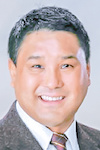
Judd Matsunaga
Indeed, the job search company, is currently running a TV commercial called “A Kid’s Daily Grind.” In it, a little girl says, “Truth is, my schedule is pretty jam-packed these days. I’ve got school Monday through Friday, Jujitsu on Thursday and library books I’ve got to get back by Friday. And my weekend? I’ve got two, no three birthday parties on Saturday. And Sunday — that’s my ‘Me Time.’ I am not willing to give that up.”
Imagine, a little kid who knows nothing about going to work, raising a family or paying the bills is teach- ing us adults the secret to successful aging, i.e., self-care. Why not learn a lesson from the little girl on the Indeed TV commercial and protect your “Me Time” this year. If you can learn how to practice self-care in 2025, you will be better off — both physically and mentally.
Sadly, many of us get so wrapped up in family obligations or career demands that our needs take a back seat to the demands of others instead. As a result, we don’t pay enough attention to the essentials of self-care. A healthy diet and regular exercise become afterthoughts. We miss doc- tor appointments and let our stress build to dangerously high levels.
So, if you’re one of the 4 in 10 adults that are not making any resolutions this year (source: www.statista.com), I’ve got a good New Year’s resolution for you: Create more “Me Time” by practicing self-care.
In the truest sense of the term, self-care is not about temporary “pick-me-ups.” Rather, it is a holistic approach to better overall health that focuses on the body, mind and spirit — a much broader set of practices that will serve you well over the long run.
Self-care is based on lifestyle medicine — an evidence-based approach to disease prevention and treatment that focuses on adopting healthy habits. It doesn’t re- place traditional medicine, but it is a powerful complement to it. Americans are far less healthy than they could be. According to the CDC, 6 out of every 10 adults live with at least one chronic disease, and 4 in 10 people have two or more conditions.
The irony is that these chronic diseases are largely preventable. In 2018, researchers from Harvard’s T. H. Chan School of Public Health analyzed data from the CDC and two long-term population studies. They found that people who practiced five specific lifestyle habits dramatically reduced their risks of heart disease and cancer, compared to those who did none of these things. The healthy participants:
(1) Ate a diet high in fruits and vegetables, whole grains and unsaturated fatty acids and low in red and processed meats, sugary drinks, trans fats and sodium
(2) Did not smoke
(3) Got at least three-and-a-half hours of moderate-to-vigorous physical activity each week
(4) Drank only moderate amounts of alcohol (no more than one drink per day for women and two drinks or less per day for men)
(5) Maintained a healthy body mass index (BMI) in the range of 18.5-24.9.
How effective were these measures? The researchers found that practicing all five habits from age 50 onward extended life expectancy by more than a decade compared to practicing none of them.
True self-care goes beyond the five specific lifestyle habits listed above. It also involves fostering (or developing) meaningful social connections. At every stage of life, from birth until death, humans need social connections and support. “That need is hardwired into us,” said Julianne Holt-Lunstad, director at Brigham Young University in Utah. She and her colleagues found that being lonely and socially isolated confers as great a health risk as smoking up to 15 cigarettes a day.
The connection between mind and body has never been clearer than it is today. For instance, research shows that both objective isolation (actual physical separation) and perceived isolation (the feeling of being alone) can lead to the release of stress hormones. While these hormones play essential roles in the body, persistently high levels can be harmful. Over time, elevated stress hormones can contribute to chronic illnesses such as cardiovascular disease, high blood pressure, diabetes, dementia, anxiety and depression.
“There is something about relationships, social connectedness, community life that is central to what it is to be human, what it is to flourish,” said Tyler VanderWeele, professor of epidemiology at the Harvard T . H. Chan School of Public Health.
In conclusion, “Volunteering is a proven buffer against stress and depressive symptoms and can be particularly effective in lessening feelings of isolation. That is because loneliness tends to draw people’s attention inward, while giving back turns it outward,” said Dr. Kory Floyd, a professor of communication at the University of Arizona and the author of “The Loneliness Cure.” “You are focusing on the joy and comfort you can bring to others.”
Judd Matsunaga is the founding attorney of Elder Law Services of California, a law firm that specializes in Medi-Cal Planning, Estate Planning and Probate. He can be contacted at (310) 348-2995 or. The opinions expressed in this article are the author’s own and do not necessarily reflect the view of the Pacific Citizen or constitute legal or tax advice and should not be treated as such.



